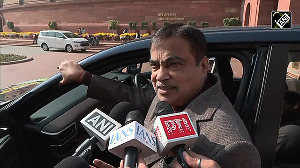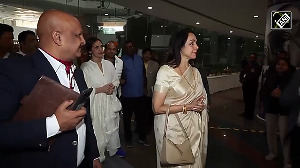A businessman in Singapore wanted to register a wholly owned subsidiary in India, and went to a lawyer to get the job done.
The lawyer advised him that if it was to be the subsidiary of an international company, the authorised capital would have to be 10 times the minimum stipulated for an Indian company.
Asked for the reason, none could be provided. The next problem cropped up with the name.
If it was a wholly owned subsidiary, the Indian company must have the exact name as the parent overseas, with 'India' suffixed in brackets.
Well, if that was the rule, so be it. But what if the international company's name has already been registered by someone else in India, and therefore is not available any more? Would that mean the Singapore company cannot set up a subsidiary in India, because the prescribed name is already taken and because the rules don't permit any other name?
The lawyers advising the businessman had no answer. Kafkaesque, isn't it?
Our Singapore businessman tried to find out where all these rules could be found, and got nowhere. In contrast, all that he had to do when he registered his company in Singapore was go to the designated Website, do a search on names, pick a name and check if it was available, and fill in the form on the site when he found the free name that he liked.
Armed with the on-line registration, he could walk into a bank and open an account, and he was in business. Is he being unreasonable when he asks why the government of India can't make life as easy for a potential investor?
The story gets repeated with the entrepreneur who happens to have a small NRI holding in his dot-com company, and wants to start a publishing venture.
Do the rules on foreign investment in print media permit him to register a newspaper, or not? No one seems to know.
The forms with the registrar of newspapers are not clear, because there are four or five options on the forms (depending on which category you belong to), and at least some of these forms seem to go under different nomenclatures in different people's hands.
Our entrepreneur can't decide which form applies to him because the policy says nothing about NRIs and whether their holdings qualify as FDI. And once again, no one has any clear answers.
This story gets repeated in various forms, depending on the sector and the project.
Reliance people like to list the roughly 300 clearances that are still required before you can start a power project. Others have listed the 50 or so clearances required before you can start a hotel. And so on.
The short point is that, for all the talk of reform and deregulation, Indian babudom survives and is indeed flourishing.
If it's not the Centre, it's the states. Some pro-active states, like Andhra Pradesh, might chase you and make sure that any problems you confront are quickly sorted out so that you don't go wandering off to Tamil Nadu or Gujarat, but these are the exception.
In most cases, the government simply does not care. So you don't have an answer when a visiting businessman asks why an Australian mining company felt it had to bribe a minister because it wanted a mining lease.
The interesting thing is that the various attempts at trimming babudom have failed abysmally.
The Geethakrishnan committee submitted a whole series of reports, suggesting the winding up of all manner of superfluous government organisations, but there has been no action at all.
The number of government employees (supposed to shrink, according to the last Pay Commission, by 3 per cent a year through the natural progression to retirement) has kept growing instead.
Indeed, as the prime minister and the chief ministers have indulged in steadily larger councils of ministers, more posts are being created every day to keep everyone at least nominally busy.
It's no secret that many of the ministers have no work at all, and some of them even stopped attending office long ago, after complaining to Mr Vajpayee that they had nothing to do.
So we have more ministers, more babus, more rules and regulations, more forms and more clearances than we have ever had before.
And we are of course reforming.





